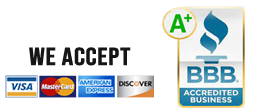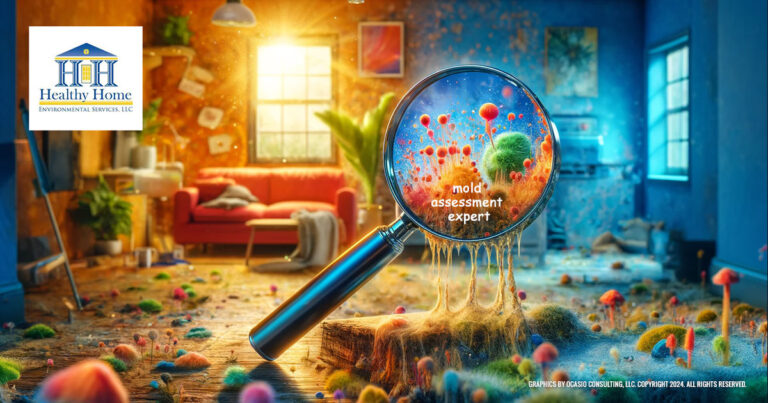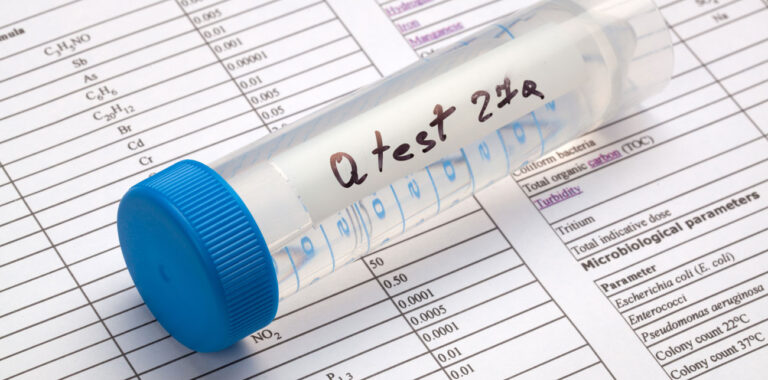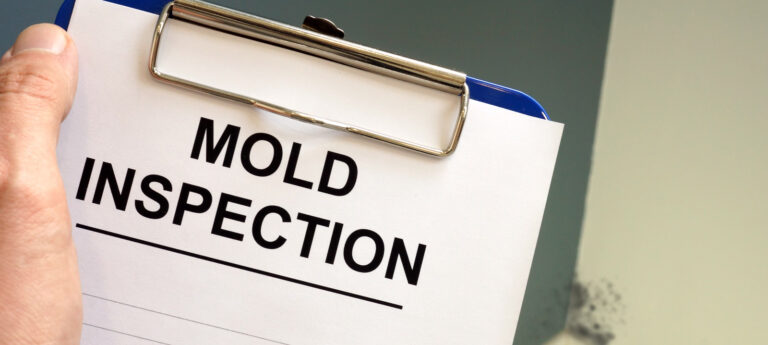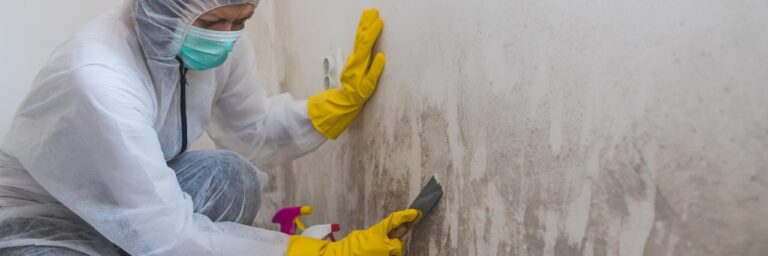Commercial Mold Inspection and Testing for Central Florida Properties

Exposure to elevated levels of mold can present a significant health hazard for occupants of commercial buildings. Mold thrives in the warm, humid climate of Central Florida. Without proper moisture control and mold mitigation, businesses face risks ranging from employee illnesses to litigation over sick building syndrome.
Conducting professional mold inspection and testing allows Central Florida enterprises to identify infestations early, before they escalate into major indoor air quality (IAQ) issues. A thorough investigation by a qualified inspector also provides the documentation needed to undertake proper remediation.
This guide covers key factors for commercial mold inspection and testing specific to Central Florida’s humid environment. It outlines what building managers need to know to protect their investments and occupants.
Common Mold Infestation Areas in Central Florida Commercial Buildings
Mold can grow in any damp areas of a building. But some locations in Central Florida commercial properties see the highest likelihood of fungal growth:
HVAC Systems
- Condensation buildup on air vents, ducts and cooling coils provides ideal humidity for mold. Improper drainage results in standing water.
- Filters can become clogged with microbial growth. Spores then spread through ventilation systems.
Basements and Crawlspaces
- High ambient moisture allows surfaces like concrete walls and wood supports to become mold breeding grounds.
- Leaky foundations and cracked walls/floors enable water intrusion, feeding mold growth.
Roof Leaks
- Failed or damaged roofing materials lead to leaks, especially during Florida’s rainy season.
- Water damage promotes mold growth in ceiling tiles, insulation and other obscured areas.
Bathrooms
- Showers, sinks and toilets produce high humidity mold thrives on. Ventilation issues compound problems.
- Plumbing leaks saturate porous surrounding walls, ceilings and floors.
Flood-Damaged Areas
- Heavy rainfall, busted pipes, or AC overflow often create localized flooding.
- Standing water in carpets, drywall and wood feeds rapid mold growth.
While mold can grow almost anywhere given the right conditions, focusing inspection efforts on these common problem zones increases the odds of early detection in commercial settings.
Top Signs of Mold Infestation for Central Florida Businesses to Watch For
Catching commercial mold problems early requires carefully watching for common warning signs:
Musty Odors
- Stale, earthy smells signal mold growth, especially when stronger near known moisture sources.
Discoloration/Staining
- Dark spots on ceiling tiles, drywall or baseboards indicate mold may be accumulating behind them.
Peeling Paint or Wallpaper
- Bubbling or peeling interior finishes suggest moisture buildup beneath materials.
Flooring Damage
- Carpet lifting, warping wood floors and tile cracking point to flooding underneath.
High Humidity Readings
- Consistently elevated humidity levels above 55% encourage mold growth.
Tenant Health Complaints
- Coughing, respiratory issues and nose/throat irritation reported among occupants can indicate poor IAQ.
Remediating at the first signs of mold protects health and prevents more extensive infestations that risk closure or evacuation.
Professional Mold Inspection Process for Central Florida Commercial Sites
Thorough mold inspection by qualified professionals involves key steps:
Visual Examination
- Mold professionals visually scan all accessible areas for moisture issues, Mold growth, and warning signs like musty odor or stains.
Moisture Mapping
- Inspectors use moisture meters to identify dampness in walls, floors, ceilings that may indicate water intrusion issues.
Air Quality Testing
- Air samples are captured and laboratory analyzed to identify spore types and concentrations.
Surface Sampling
- Swab samples are taken from visible mold growth to diagnose specific species present.
Infrared Thermal Imaging
- Infrared cameras detect temperature differences suggesting hidden moisture in walls or under materials.
HVAC Inspection
- Heating and cooling ductwork is scanned for contamination and proper ventilation function.
A comprehensive mold inspection covers all aspects of IAQ and moisture intrusion that could permit undesired mold growth.
Mold Testing Techniques Used for Central Florida Commercial Sites
Mold testing employs several methods to identify contamination:
Air Sampling
- Air pumps capture mold spore samples indoors and outdoors to compare concentrations.
Surface Sampling
- Bulk samples of visible mold growth are collected through swabs and tape lifts.
Infrared Thermal Imaging
- Infrared cameras detect invisible moisture allowing mold to grow inside walls.
Real-time Particle Counting
- Optical laser particle counters instantly measure mold spore density in air.
Environmental Testing
- Humidity, temperature,dew point, and light levels are measured to assess mold growth conditions.
HVAC Inspection
- Ventilation ducts are scoped with cameras to check internally for contamination.
Commercial mold testing focuses on air quality while identifying specific infestation locations. This data directs proper remediation.
Professional Mold Remediation Process for Commercial Buildings
Mold infestations in commercial buildings require extensive remediation by trained professionals:
- Isolate Affected Areas: Work zones for cleanup are sealed off with containment barriers to prevent spore spread. HEPA air scrubbers run continuously.
- Remove Moldy Materials: Porous fixtures, drywall, insulation, carpeting and contaminated HVAC system components are removed and discarded.
- Kill and Contain Remaining Spores: Surface mold is killed using biocides. Loose spores are captured by vacuum filters. Air is filtered continuously.
- Dehumidify Environment: Powerful drying equipment is used to lower ambient humidity levels below 50% to deter recurrence.
- Repair Moisture Problems: Leaks are fixed, drainage issues corrected, and humidity management systems installed.
- Verify Remediation Results: Final clearance testing of air and surfaces confirms spore levels are safely within limits after project completion.
Mold remediation for commercial buildings is an extensive, multi-step process requiring hazardous material training. Only licensed professionals should undertake these projects.
Mold Prevention Tips for Central Florida Commercial Properties
While mold remediation tackles existing infestations, prevention is key to avoiding major indoor air quality issues:
- Install humidity sensors that trigger alarms when moisture levels exceed 55%. Monitor regularly.
- Maintain HVAC systems properly with professional maintenance, cleaning and replacement of old ductwork. Ensure adequate ventilation.
- Quickly repair any plumbing leaks, water intrusion issues, moisture damage, etc. to deny mold water sources.
- Avoid carpet and fabrics wherever possible. Use mold-resistant building materials.
- Institute a smoking ban – tobacco smoke residues promote spore growth.
- Educate tenants on promptly reporting any mold-related concerns like musty smells.
With vigilant prevention, quick response to warning signs, and professional remediation of any growth, Central Florida businesses can protect their investments and occupants from the risks of commercial mold infestations.
Frequently Asked Questions About Commercial Mold Issues in Central Florida
Conclusion
Left unchecked, mold problems present significant health hazards to commercial building occupants while damaging enterprise investments. Central Florida’s humid, rainy climate necessitates proactive inspection, maintenance, and professional remediation when growth occurs.
Protecting indoor air quality requires expertise building managers often lack. Partnering with a professional commercial mold inspection and remediation firm provides the skills and documentation needed to keep commercial buildings compliant and safe from the consequences of uncontrolled mold growth.

